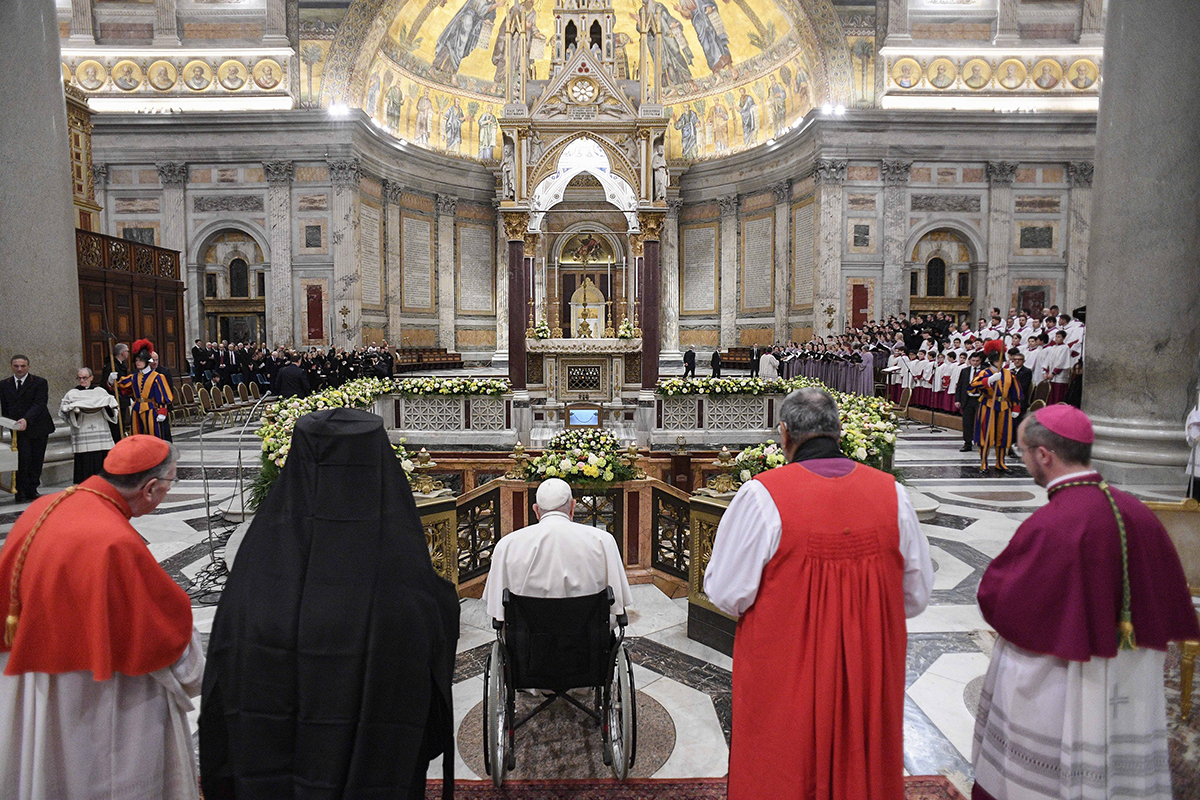BEFORE THE CROSS | Lent helps us to listen, respond to God
Among our many words and our many actions, what one word does our life speak?

The readings for the first week of Lent show that what the Israelites wanted from God was a sort of salvation arithmetic: “If we add up enough good deeds that will secure our relationship with you, right?”
The readings also show what God’s response always has been: “I want more for you. I have something much bigger in mind for our relationship.”
For example, in the first line of the first reading of the week, God says to Israel: “Be holy, for I, the Lord, your God, am holy.” And in the last line of the last reading of the week Jesus says: “Be perfect, just as your heavenly Father is perfect.” Jesus also says, in the middle of the week: “Unless your righteousness surpasses that of the scribes and Pharisees (those who pile up the greatest number of good works in their salvation arithmetic), you will not enter the Kingdom of heaven.”
God has bigger plans for us than a mere balance sheet that adds up good deeds and subtracts bad ones. He wants us to share in His own holiness!
Lent doesn’t require that we get there — that we achieve perfect holiness — by the end of six weeks. That would be discouraging! Year after year we try and fail. The Holy Spirit is never discouraging, in that sense. Still, God is encouraging us to think of a bigger and deeper possibility than salvation arithmetic.
If you could express your life in just one word what would it be?
That may sound crazy. But the Catechism of the Catholic Church tells us that “through all the words of Sacred Scripture, God speaks only one single Word” (CCC 102). There are more than 500,000 words in the Greek and Hebrew versions of the Bible, and close to 800,000 words in its English translation. But through all of those words God is speaking one Word: Jesus.
Of course, the Hebrew concept of “word” is slightly different from ours. For example where we refer to “the Ten Commandments,” Jewish people speak of “the ten words.” So a word can stand for an entire idea or concept. But even in that sense the question remains: Among our many words and our many actions, what one word does our life speak? For some people it’s “service.” For some it’s “peace.” For some it’s “wisdom” or “prayer.” And sadly, for some it’s “bitterness” or “resentment.”
Perhaps that’s why the prophet Ezekiel tells the Israelites: If you convert from evil to good, God won’t remember your past deeds. You will, in effect, be speaking a new word, and He will hear it. But if you turn from good to evil, God won’t remember your past good deeds. You will also be speaking a new word. God will hear and judge that word.
Lent is a time to do three things.
1) Consider the word that our lives actually speak, and the word that we want our lives to speak.
2) Shave off, from our words and deeds, whatever is inconsistent with that one word.
3) Deepen, in our daily actions, whatever is consistent with that word.
In the end, that word is something that God wants to say to the world through us. Lent is a time to listen more deeply to what God wants to say to us and then to cooperate more deeply with what He wants to say through us.




